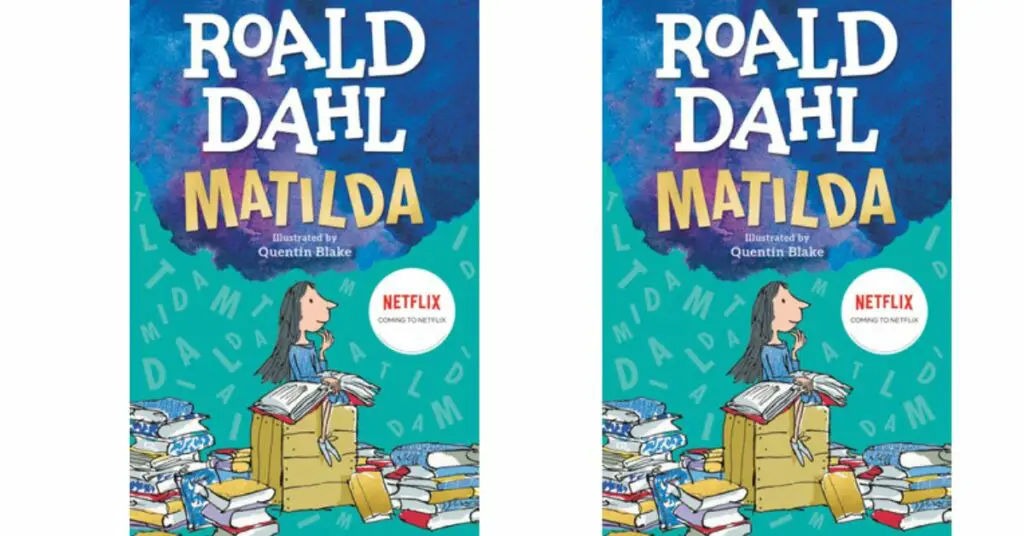The matter of how many minutes a student should read in a day carries no simple answer. It depends on a number of factors, including the age and ability of the student, the type of material being read, and the purpose of the reading.
However, there are some general guidelines that can be followed.
The first thing to consider is the age of the student. Generally speaking, younger students will need less time to read than older students. This is because younger students have shorter attention spans and are not able to process information as quickly as older students.
A good rule of thumb for elementary school students is to have them read for 15 – 20 minutes each day. This can be increased to 30 minutes for older and more able students. For middle and high school students, it is generally recommended that they read for at least 30 minutes each day.
Another important factor to consider is the difficulty of the material being read. If a student is struggling to understand the text, then more time will need to be dedicated to reading to ensure that comprehension occurs.
However, if a student is able to understand the material easily, then less time may be needed.
It is also important to keep in mind that some students may require more time than others due to different learning styles. Some students may learn best by spending more time reading, while others may benefit from supplemental activities such as listening to audiobooks or watching videos related to the material.
Ultimately, there is no set amount of time that all students should spend reading each day. The amount of time will vary depending on factors such as age, the difficulty of the material, and learning style.
However, by following some general guidelines, students can ensure that they are spending enough time reading each day to improve their comprehension and retention of the material.
Guideline for Start Reading
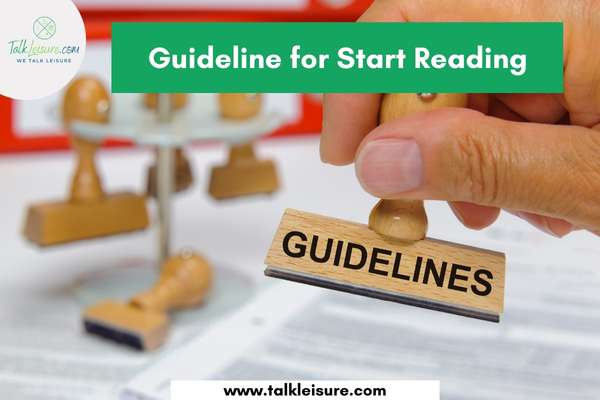
01. Have a Straight Motivation
Having a straight motivation is important to start reading! If you don’t have a clear purpose for why you’re reading, it can be easy to become discouraged and give up.
The best way to make sure you maintain your motivation is to choose books that really interest you. If you’re struggling to find something that captures your attention, try looking for recommendations from friends or Reading List features on websites like Goodreads.
Whether you’re trying to improve your literacy skills or learn more about a particular subject, setting yourself a specific goal will help keep you on track.
If you find yourself struggling to stay motivated, try seeking out occasional rewards for completing small tasks—such as taking a break after finishing a chapter or treating yourself to some new books once you reach your goal.
And remember, starting is always the hardest part – once you get into the habit of reading regularly, it’ll become much easier to keep up the momentum!
02. Find Out Books of Your Interested Topics

It’s important to find books about interesting topics because they can help keep you engaged and motivated while reading. In addition, it can also help you learn new information and perspectives on the topic that you’re interested in.
There are a variety of ways to find books on your interested topics. You can go to your local library or bookstore, search for book recommendations online, or browse through different genres and categories until you find something that piques your interest.
It improves your understanding of the topic and learns new information. Additionally, if you are interested in the topic, you will likely be more engaged in reading about it and be more likely to retain the information.
Whichever method you choose, make sure that the books you read are interesting and relevant to you so that you can get the most out of them!
03. Make a Schedule
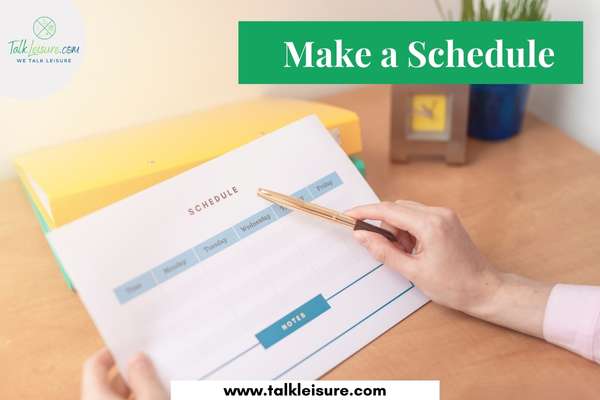
Making a schedule is important when you start reading for a few reasons. First, it helps you to spread out your reading material so that you’re not trying to read everything at once and get overwhelmed.
Second, it helps you focus on each piece of reading material so that you can better comprehend it. Third, schedules provide a way for you to measure your progress and see how much ground you’ve covered.
Finally, having a set schedule will help keep you motivated to continue reading because it gives you specific goals to strive for.
However, don’t be afraid to adjust your schedule as needed – life happens, and sometimes things come up that throw off our plans. The most important thing is that you make an effort to stick with your reading goals as best as you can.
Scheduling your reading time doesn’t have to be complicated. You can start by setting aside a specific time each day for reading and then break that time down into smaller increments based on how long you want to read.
For example, if you want to read for 30 minutes each day, you could break that down into three 10-minute sessions or spend it continuously. Find what works best for you and stick to it!
04. Get a Peaceful Background

Contentment is not having what you want but wanting what you have.
The quality of our life depends not on what happens to us but on our attitudes and how we respond to events. If we maintain a positive outlook despite difficulties, we increase our chances for happiness and success.
We live in a fast-paced world filled with constant noise and stressors. It can be not easy to find peace and relaxation when we’re constantly bombarded with stimulation.
However, it’s important to take time for yourself and focus on your mental wellbeing. One way to do this is by reading books in peaceful surroundings.
Reading can be a powerful tool for promoting peace and calmness. It can help you to escape the hustle and bustle of everyday life and relax your mind.
When choosing a book to read, look for titles that promote relaxation, peace, and calmness. Examples include books on meditation, mindfulness, yoga, nature, and world religions.
In addition to finding peaceful reading material, it’s also important to create a peaceful environment in which to read. Make sure that your reading space is clean, clutter-free, and comfortable.
Consider adding some calming elements such as candles, soft lighting, or soothing music. You might also want to try reading outside in nature for an extra dose of peace and tranquillity.
When you create a peaceful background for reading, you can escape the stresses of everyday life and find some much-needed relaxation and mental peace. Give it a try next time you need a break from the chaos of the world!
05. Carry on a Purposive Reading
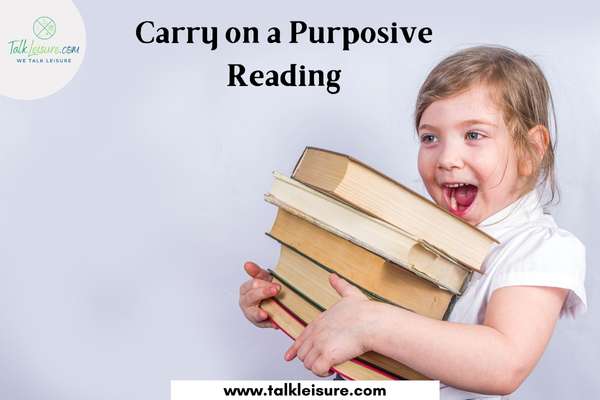
There’s no denying that reading is important. After all, without reading, there would be no way to acquire the information and knowledge we need to function in society.
However, simply reading does not necessarily mean understanding or retaining what you have read. This is where purposive reading comes in.
Purposive reading requires a concentrated effort on the part of the reader in order to fully comprehend the author’s meaning. In other words, it involves actively engaging with the text instead of just passively absorbing the information.
There are a number of different techniques that can be used in order to help with this, such as underlining or highlighting key points, taking notes, or discussing the text with someone else. The important thing is finding a method that works for you and sticking with it.
When reading, it can be easy to get bogged down in the details, but try to focus on the big picture. Ask yourself questions such as the author’s main argument, what evidence they provide to support this, and what counterarguments they consider.
Analyzing the text in this way will help you to understand better and remember what you have read. So the next time you sit down to read, make sure to do so with purpose! You may be surprised at how much more you get out of the experience.
Importance of Reading

01. Develop Empathy & Imagination
Reading fiction has been shown to improve empathy and imagination. By reading stories about different people and places, you can better understand the world around you.
You can also explore different emotions and situations, which can help you to understand other people better.
In one study, participants who read a short story about a character’s emotional experience showed increased activity in the areas of the brain associated with empathy.
And in another study, participants who read a passage from The Catcher in the Rye showed increased activity in the area of the brain associated with imagination.
Finally, reading can help you imagine yourself in different scenarios, giving you a richer and more varied life experience. So go ahead and pick up a book today – your mind will thank you for it.
So it appears that reading fiction can help you understand other people better and imagine different worlds and experiences.
02. Improve Creativity
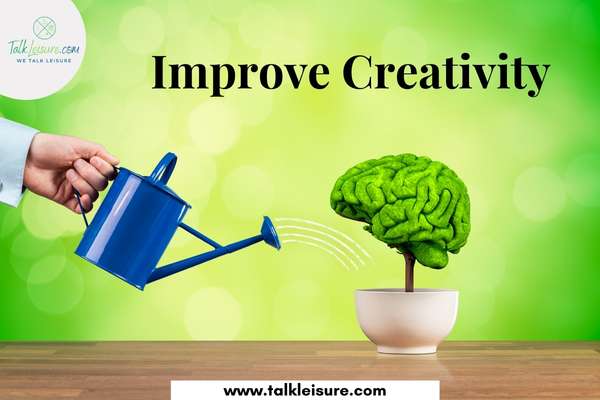
A lot of research suggests that reading can indeed improve Creativity. One study found that people who read fiction were more creative than those who read non-fiction, and another study found that people who read poetry were more creative than those who didn’t.
Reading can improve creativity because when you read, you’re exposed to new ideas and perspectives, and you’re also forced to come up with your own interpretations of what you’re reading.
This helps to expand your thinking and allows you to see things in a new way. So if you want to be more creative, try reading more books.
03. Enhance Concentration
There’s no doubt that reading can enhance Concentration. When you’re lost in a good book, your entire focus is on the story at hand.
You’re not thinking about anything else that might be going on in your life or around you. This single-mindedness can transfer to other areas of your life, helping you to focus and concentrate better overall.
Of course, it’s important to find the right type of book for you. If you’re struggling to focus, something that’s fast-paced and full of action is likely to hold your attention better than a slow-moving novel.
Ultimately, any reading can help improve your Concentration if you apply yourself fully to it. So whatever topic interests you, make sure to give it a try.
04. Increase Language & Reading Skills
There are many benefits to reading, both for children and adults. Research has shown that reading can help improve language and reading skills.
In fact, a study by the US Department of Education found that students who read regularly performed better on standardized tests than those who did not read regularly.
In addition to improving language and reading skills, reading also offers numerous other benefits.
For example, reading can help improve memory, focus, and Concentration. It can also reduce stress levels and promote relaxation. Furthermore, reading can provide opportunities for bonding and social interaction with others.
So if you’re looking for ways to improve your language and reading skills, or want to enjoy all the benefits that come with reading, then make sure to pick up a book today.
05. Widen Intelligence

There is some controversy around the idea of “reading” Intelligence, but some research suggests that it’s possible to increase Intelligence through various reading exercises.
One study found that a group of students who read extensively (defined as reading one book per week for two years) showed significant increases in their IQ scores compared to a control group of students who did not read extensively.
Another study found that students who received tutoring in critical reading skills showed significant improvements in their standardized test scores compared to a control group of students who did not receive tutoring.
So it seems that there is some evidence to suggest that reading can indeed help to increase Intelligence. However, more research is needed in this area before any definitive conclusions can be drawn.
In the meantime, if you’re looking for ways to improve your Intelligence, then reading extensively and receiving tutoring in critical reading skills are two options worth considering.
Visual Explanations
i. Tips to Improve Reading:
ii. Why reading is important? :
Related Matters
01. Is 15 – 20 minutes of reading a day enough?
There is no definite answer as to whether 15 – 20 minutes of reading a day is enough. It depends on various factors, such as your age, what type of books you’re reading, and your personal reading goals.
If you’re a young reader, just starting out with easy readers or picture books, 15 – 20 minutes a day is probably plenty. You’ll likely enjoy the stories and benefit from the learning opportunities at this stage without needing to spend hours reading each day.
Conversely, if you’re an older reader who enjoys longer works of fiction or non-fiction, you might want to aim for more than 15 – 20 minutes of reading time each day.
If your goal is to enjoy the stories, then 20 minutes might be sufficient. But if you’re looking to improve your reading comprehension or speed-reading skills, you’ll need to devote more time to reading each day.
In short, there is no right or wrong answer as to how much reading time you should aim for each day. Just find a comfortable balance that works for you and stick with it.
02. What happens if you read every day?
The benefits of reading every day are numerous. For starters, reading can help you relax and escape from the stresses of daily life. It can also improve your vocabulary and knowledge base and make you more cultured and well-rounded.
Additionally, reading has been shown to boost brain function and memory, increase empathy and compassion, and even reduce stress levels. So if you’re looking for ways to improve your mental wellbeing, reading should be at the top of your list!
03. How much reading is too much?
It’s not so much the amount of reading that’s important as it is the quality of what you’re reading. If you’re reading books that are inspiring, uplifting, and educational, then you’re doing yourself a lot of good.
But if you’re reading books that are negative, depressing, or full of propaganda, then you’re better off not reading them at all.
So the bottom line is this: read whatever makes you feel good and inspires you to be your best self. And avoid reading anything that makes you feel bad or brings out your dark side.
As they say, “you are what you eat”, and the same applies to what we read. So feed your mind with positive and empowering thoughts, and you’ll be well on your way to a bright and successful future!
04. What are the habits of a good reader?
There are a few habits that will help you become a better reader. First, be willing to read widely and diversely. Read different genres, styles, and authors so that you can develop a better understanding of what makes good writing.
Second, read critically. Pay attention to the structure of the piece, the author’s argument, and how they make their case. This will help you understand how to put together your own thoughts into a coherent argument.
Finally, practice regularly. The more you read, the better you’ll become at it. With time and practice, reading will become second nature to you, and you’ll be able to extract more information from each text.
05. Is it better to read than watch TV?
The answer to this question really depends on what you’re looking for in a pastime. Reading definitely has educational benefits, whereas watching TV is more likely to be mindless entertainment.
However, reading can also be quite a time consuming and can take you away from other activities, such as spending time with friends and family. Whereas TV is passive and generally doesn’t require your full attention, meaning you can multitask while watching it. So it ultimately comes down to what you value more in a pastime.





